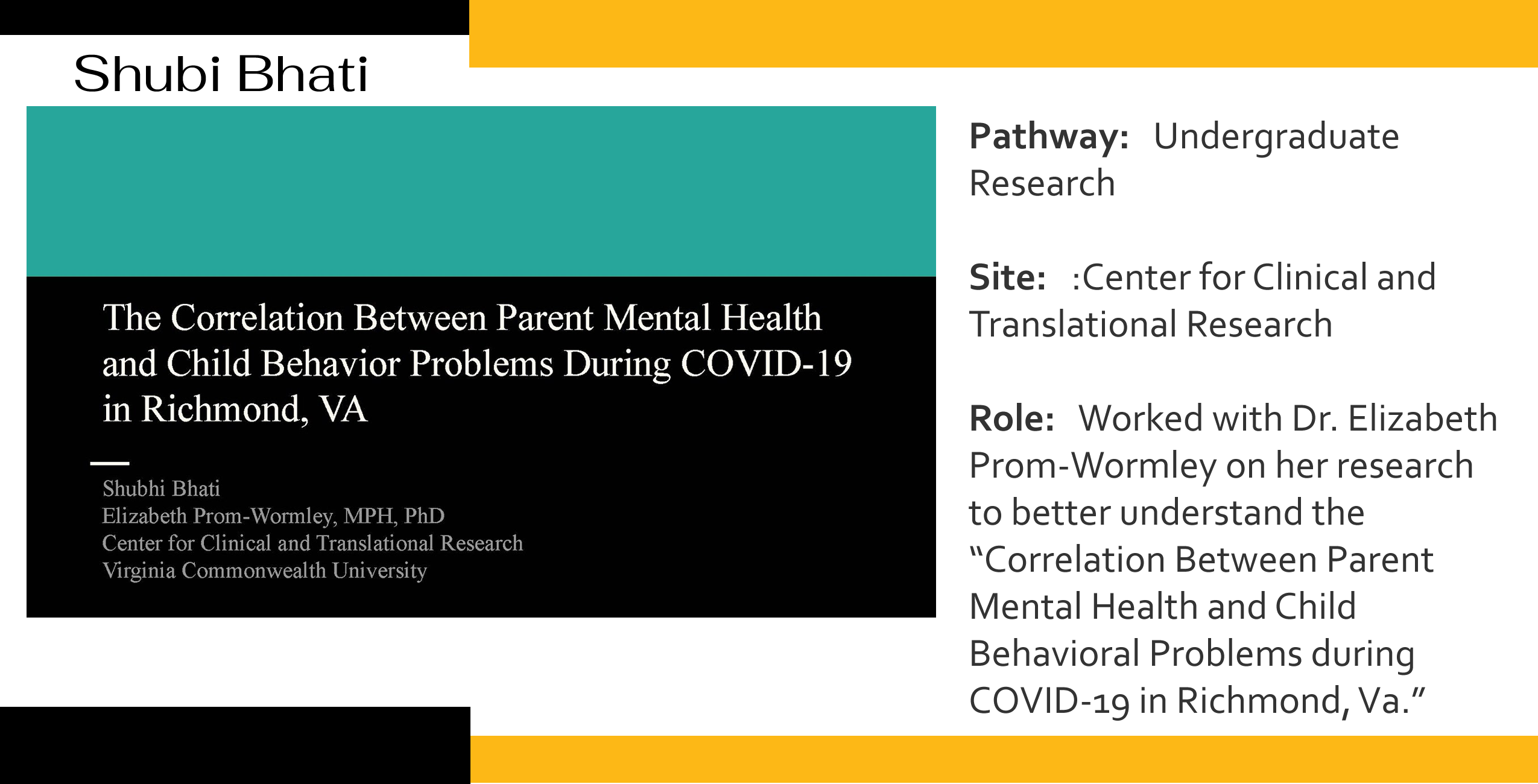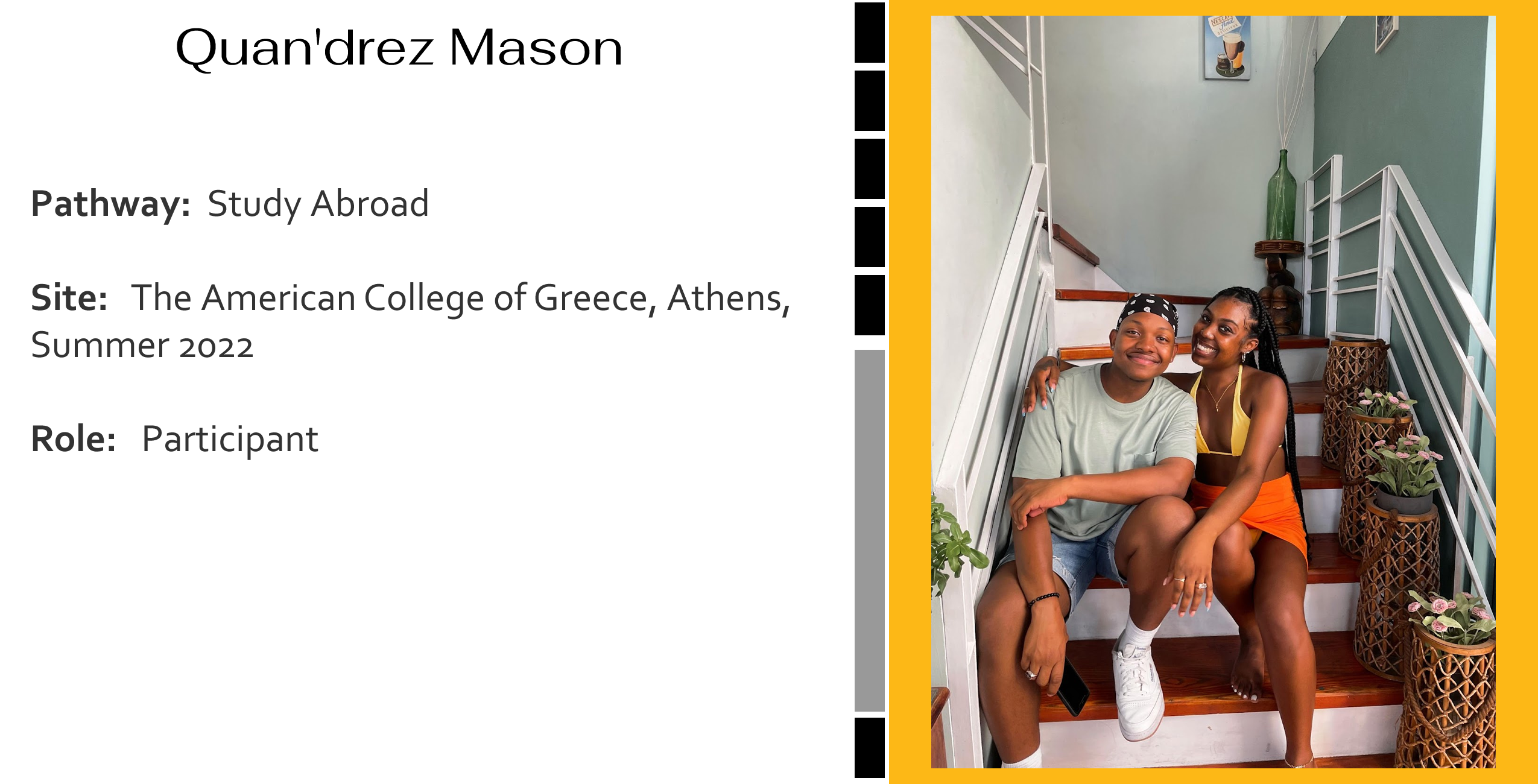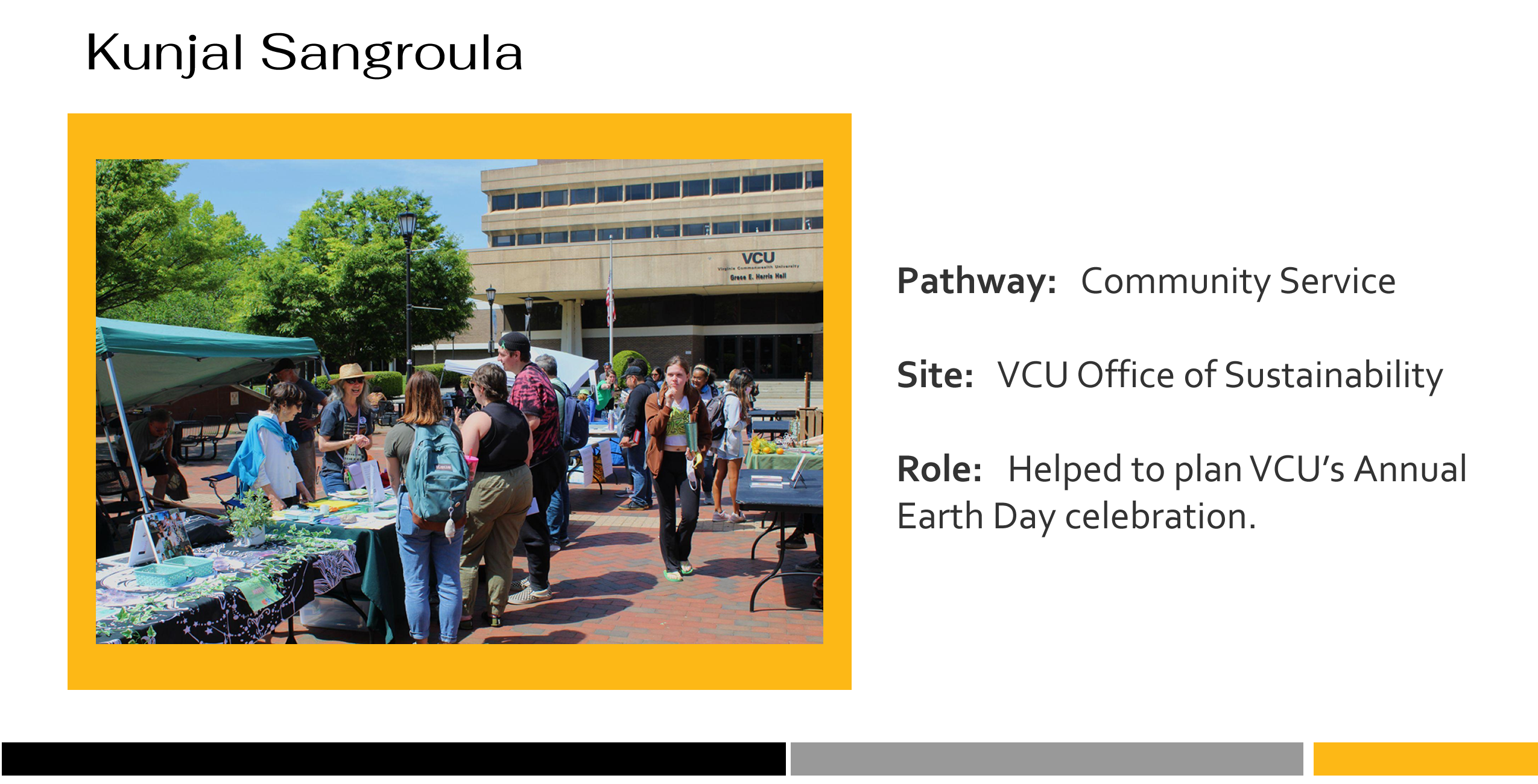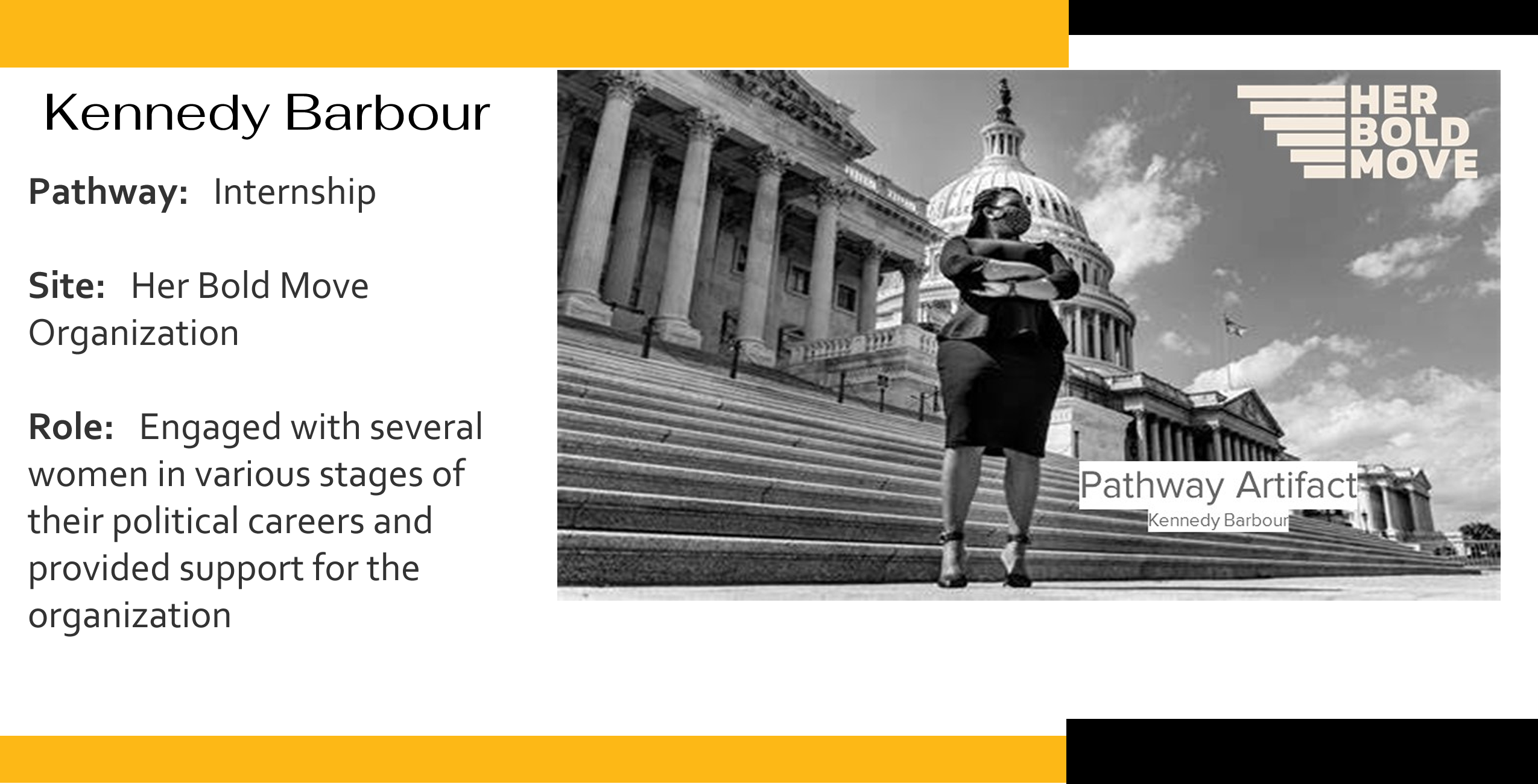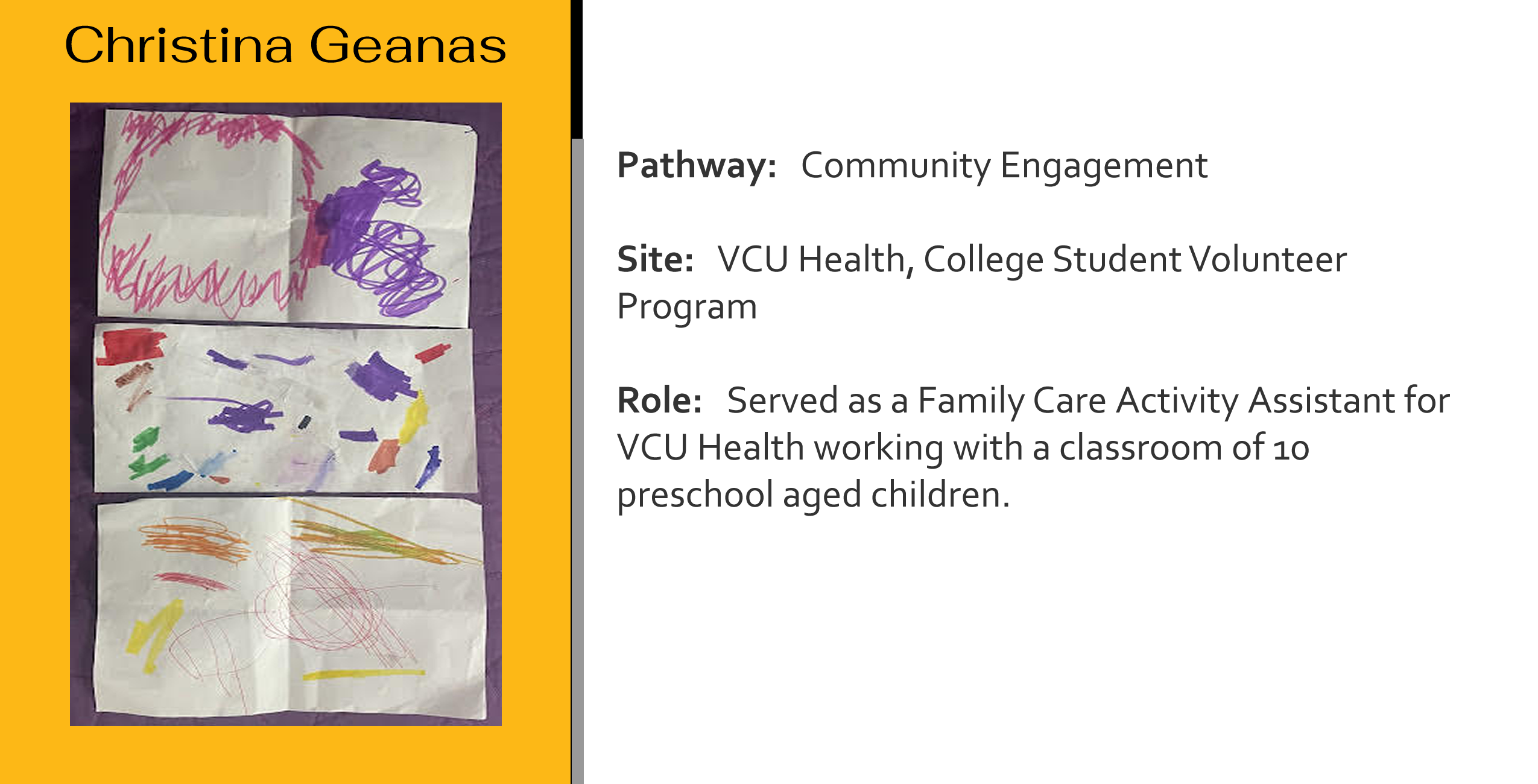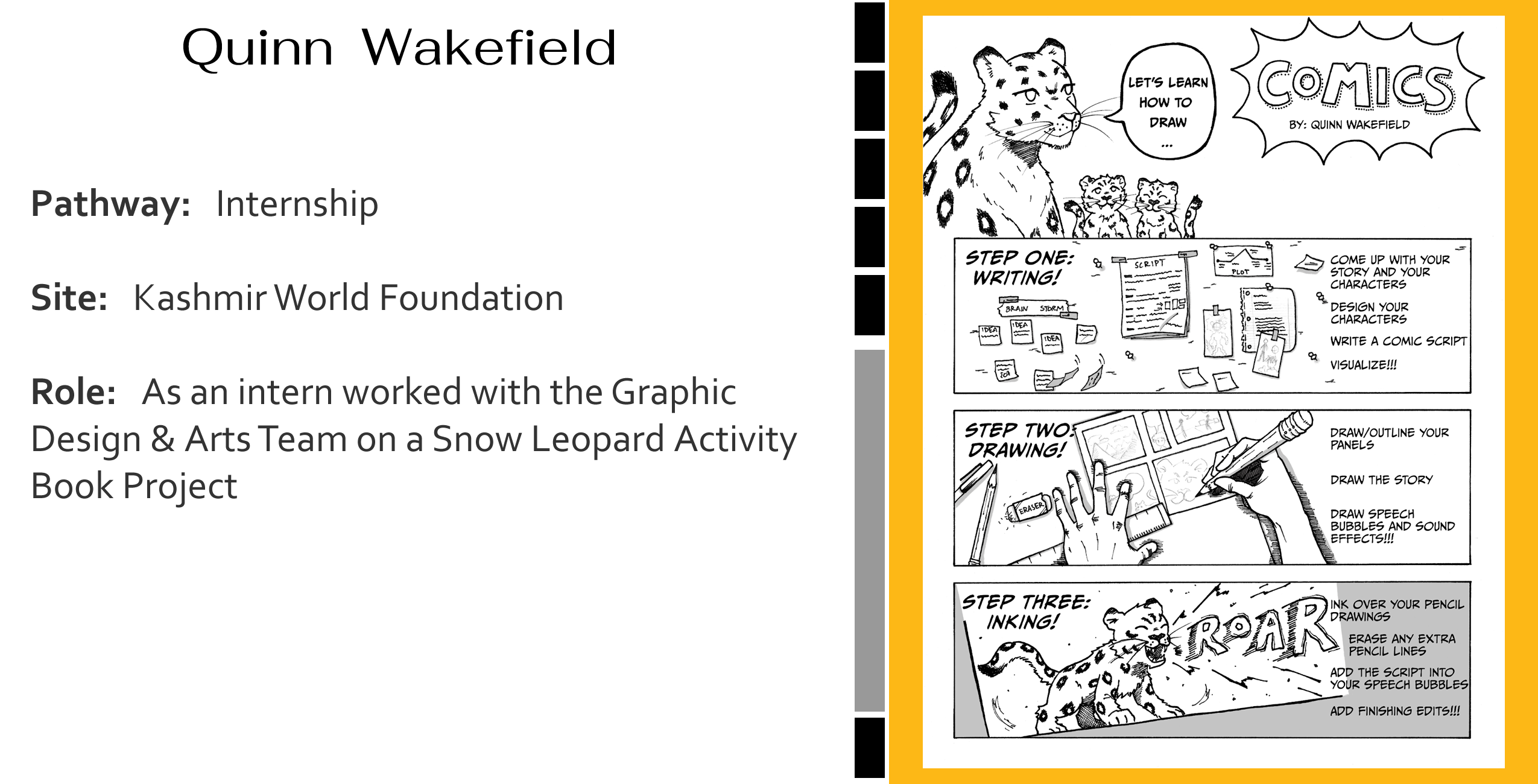Overview of Pathway Experience and Requirements
VCU Transform students integrate the curricular and co-curricular components of the living-learning program through development and implementation of a Transform Experiential Learning Pathway. The pathway experience allows students to customize their Certificate of Leadership Studies & Experiential Learning to fit their own interest, align with their major or minor course of study, and/or to explore something new. Transform Pathways are designed to fit into the Relevant Experiential & Applied Learning (REAL) Framework. Over the course of your students’ first semester, they participate in different opportunities to prepare them for their Pathway experience. Students completing their first year in VCU Transform will take steps to fully develop a Pathway plan, will implement their plan during the summer and/or fall semesters, and reflect upon their experience throughout their pathway experience.
VCU Transform partners with many offices and programs on campus to provide support for the pathway process. This support takes form in collaborative workshops, including our Pathway Fair when we bring in representatives from each office to discuss pathway opportunities, share tips for success and show you how to get started.
Real 4 Designation
VCU Transform is designated as a REAL Level co-curricular opportunity. Real Level 4 Experiences are defined as an activity that engages students in a clearly defined experiential learning activity that incorporates reflection, mentoring, and integrative learning as both a pedagogy and a learning outcome. VCU Transform is pleased to exemplify the following REAL classification pillars of high-impact learning listed through the living-learning program, experiential pathway, and Success Guide opportunities that we facilitate for students:
- Hands-on: Hands-on is an approach to how students’ learn by doing, through the use of active strategies rather than lecture alone. (Bonwell & Eison, 1991; Sullivan, 2009). The process of hands-on learning is grounded in Kolb’s model of experiential learning (1984) that incorporates concrete experience, reflective observation, abstract conceptualization, and active experimentation.
- Guided reflection: Guided reflection is a learning process specifically structured to deepen understanding of lived experiences, and is most effective when it is continuous, connected, challenging, and contextualized. (Eyler, Giles, and Schmiede, 1996).
- Mentoring: Mentoring is a learning strategy to develop the mentee’s ability to acquire knowledge, skills, and self-confidence that will assist them in setting and achieving goals. (Hastings and Kane, 2018) It works best when it is a time bound, developmental, and reciprocal relationship between a more experienced mentor and a less experienced mentee or protege. (Eby & Allen, 2002)
- Integrative learning: Integrative learning is the capacity to make connections and synthesize knowledge across the curriculum, co-curriculum, and one’s own lived experiences. (AAC&U Integrative Learning VALUE Rubric)
Pathway Experience Guidelines
While the VCU Transform Pathway is unique to each student’s experience, there are a variety of programmatic requirements that span across all pathways.
All VCU Transform students are required to complete a curricular component with their experiential learning pathway. This can either be a major-related course within their course requirements (i.e. service learning opportunity or internship course) or they can take REAL 310 through the VCU Transform program.
Students are expected to be actively engaged in their pathway for 2-plus hours each week over at least ten weeks of the semester. All students are encouraged to prioritize active reflection, connection, application and synthesis from their curriculum to real-world situations throughout the pathway experience.
At the conclusion of a Transform students’ pathway experience, they are required to submit a program artifact that demonstrates the integrative learning that took place throughout their pathway. These artifacts are then utilized to develop students’ more comprehensive VCU Transform e-portfolio that outlines their “statement of Transformation” throughout the two-year living learning program.
Funding Opportunities
Looking to fund your Transform Pathway experience? Check out the links to these websites which can offer opportunities to find funding:
- Internship Funding Program through VCU Career Services
- Study Abroad funding opportunities
- Undergraduate Research Funding Opportunities
- Opportunities in Entrepreneurship
- National Scholarship Office at VCU
- RAMS Scholarship Hub at VCU
PATHWAY PARTNER UNITS:

